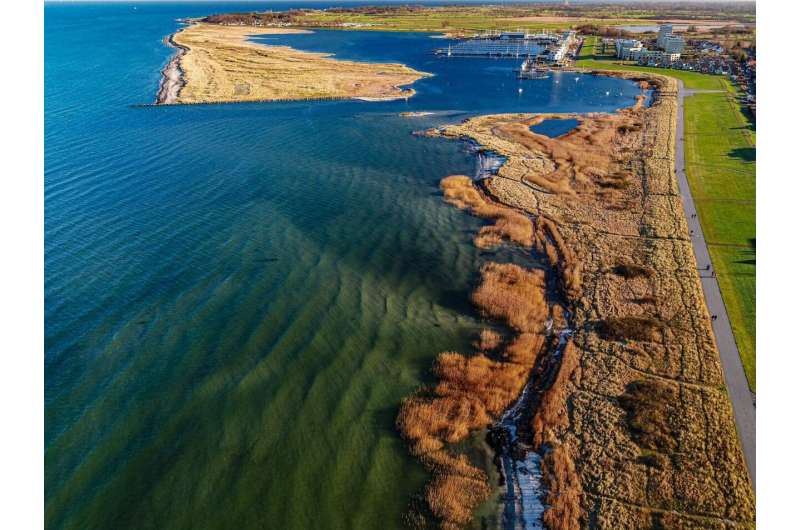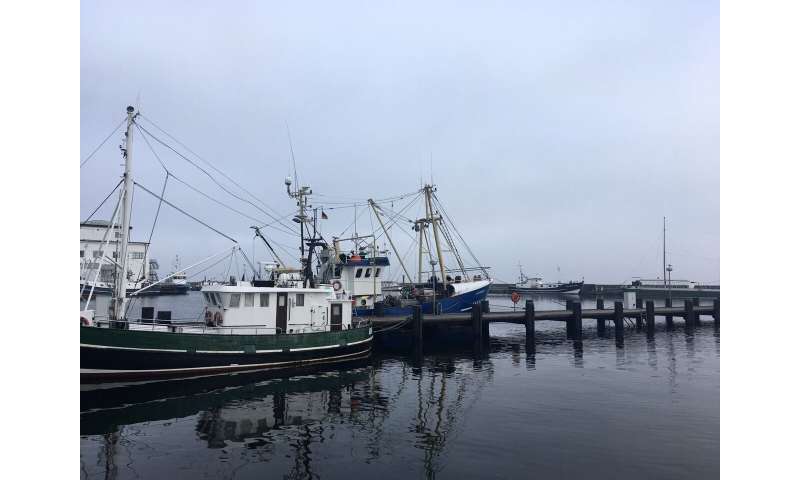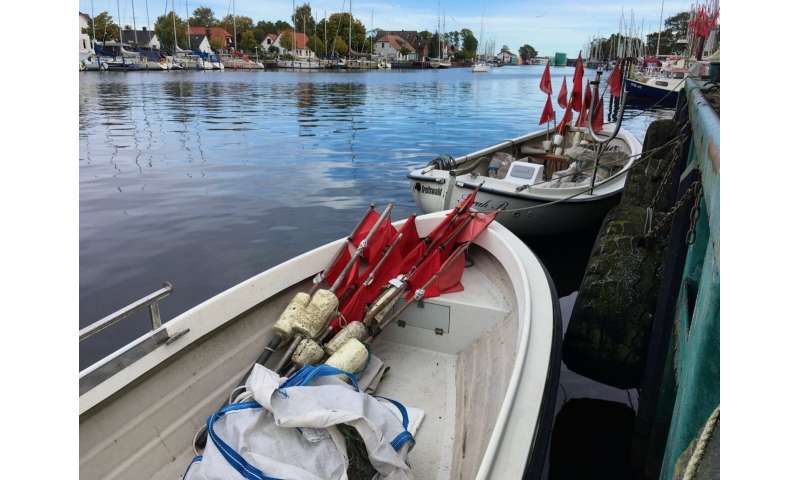Sustainable future for coastal fisheries in the Baltic sea

In the western Baltic Sea, coastal fisheries are closely linked to the economic development of coastal communities and the impacts of climate change with the increasing loss of biodiversity. For a sustainable future of fisheries, multiple interests need to be considered. These include spatial and resource conflicts, which need to be recognized between different user groups and resolved through joint dialog. The SpaCeParti project, coordinated by the Center for Ocean and Society at Kiel University, aims to contribute to this by setting up so-called living laboratories in which users are actively involved in research. SpaCeParti is a project of the research mission sustainMare "Protection and Sustainable Use of Marine Areas" of the German Marine Research Alliance (DAM).
More than 25 researchers from six institutions met on Monday, February 21, for a virtual kick-off of the project SpaCeParti (Coastal Fishery, Biodiversity, Spatial Use and Climate Change: A Participative Approach to navigate the Western Baltic Sea into a Sustainable Future). The project, which started in December and is coordinated by the Center for Ocean and Society (CeOS) at Kiel University, aims to develop sustainable use strategies for the Western Baltic Sea, with a focus on fisheries together with regional and local stakeholders at the two living laboratories Stein Wendtorf (Schleswig-Holstein) and Greifswalder Bodden (Mecklenburg-Western Pomerania). This includes stakeholders from commercial and recreational fisheries, as well as representatives from tourism, public administration, nature and environmental associations, local media and citizens.
To link research and local experts which is to be implemented on this scale in existing research projects for the first time in these regions—two locations that are particularly affected by massively reduced fishing quotas and spatial conflicts of use were chosen. In Stein Wendtorf, cod has the greatest economic importance for the nearshore fishery. In Greifswald, on the other hand, fishing is mainly aimed at catching herring. In recent years, the spawning biomasses of both species (i.e. the number of offspring-producing parents) have decreased, which has led to structural changes in both locations. At the same time, these regions are of high tourist interest, valuable habitats for nature conservation or are designated as potential areas for renewable energy production.
-

Trawl cutter Harbour Sassnitz in Mecklenburg-Western Pomerania. Credit: Heike Schwermer, CeOS/Kiel University -

Gillnet cutter in the Greifswald Bay Wieck in Mecklenburg-Western Pomerania. Credit: Heike Schwermer, CeOS/Kiel University
"Coastal ecosystems in the western Baltic Sea are under enormous pressure," says Professor Marie-Catherine Riekhof, coordinator of the project at CeOS of the Kiel Marine Science (KMS) priority research area at Kiel University. "Their biodiversity is at risk under human impacts such as climate change or eutrophication. Coastal fisheries in particular are facing major challenges. To develop viable solutions for the entire ecosystem and local people, we need new research methods. These must address the complex and interlocking challenges," says Riekhof, Kiel University professor of the political economy of resource management, with a focus on marine and coastal resources.
"Living labs have proven their value in sustainability research and are used at CeOS as an effective concept for participatory research. Involving societal stakeholders in research from the beginning is forward-looking and a great opportunity for heavily used coastal ecosystems like the Baltic Sea," adds Dr. Christian Wagner-Ahlfs, coordinator for transdisciplinary research at Kiel Marine Science (KMS). A major challenge will be to build the infrastructure and bring the stakeholders to the table. "To do this, we are drawing on existing networks and also on connections from many years of research activities in the Baltic Sea," Wagner-Ahlfs explains.
Dr. Heike Schwermer, a postdoctoral researcher at CeOS, counsels the two living labs as a fisheries expert: "We want to develop scientific and political knowledge for action to steer fisheries in the western Baltic Sea toward a sustainable future. To do this, we must simultaneously consider the needs of biodiversity protection, tourism and renewable energy production."
To implement this project, scientists are investigating the dynamics of biodiversity in the western Baltic Sea, filling knowledge gaps on recruitment processes of cod and herring. In addition to developing food and fisheries models, the project also aims to develop dynamic adaptation pathways. A better understanding of political and socio-economic processes should result in political knowledge for action and thus contribute to the sustainable use of the socio-ecological system of the Western Baltic Sea.
Provided by Kiel University





















